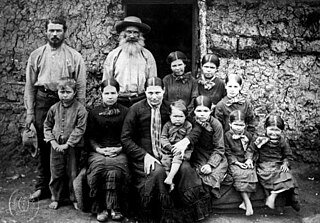
Boers are the descendants of the proto Afrikaans-speaking Free Burghers of the eastern Cape frontier in Southern Africa during the 17th, 18th, and 19th centuries. From 1652 to 1795, the Dutch East India Company controlled the Dutch Cape Colony, which the United Kingdom incorporated into the British Empire in 1806. The name of the group is derived from Trekboer then later "boer", which means "farmer" in Dutch and Afrikaans.

The Day of Reconciliation is a public holiday in South Africa held annually on 16 December. The holiday came into effect in 1995 after the end of apartheid, with the intention of fostering reconciliation and national unity for the country. Recognising the need for racial harmony, the government chose the date for its significance to both Afrikaner and indigenous South African cultures. The celebration of the Day of Reconciliation can take the form of remembering past history, recognising veteran's contributions, marching, and other festivities.

The Great Trek was a northward migration of Dutch-speaking settlers who travelled by wagon trains from the Cape Colony into the interior of modern South Africa from 1836 onwards, seeking to live beyond the Cape's British colonial administration. The Great Trek resulted from the culmination of tensions between rural descendants of the Cape's original European settlers, known collectively as Boers, and the British. It was also reflective of an increasingly common trend among individual Boer communities to pursue an isolationist and semi-nomadic lifestyle away from the developing administrative complexities in Cape Town. Boers who took part in the Great Trek identified themselves as voortrekkers, meaning "pioneers" or "pathfinders" in Dutch and Afrikaans.

The National Party, also known as the Nationalist Party, was a political party in South Africa from 1914 to 1997, which was responsible for the implementation of apartheid rule. The party was an Afrikaner ethnic nationalist party, which initially promoted the interests of Afrikaners but later became a stalwart promoter and enactor of white supremacy, for which it is best known. It first became the governing party of the country in 1924. It merged with its rival, the South African Party (SAP), during the 1929-1939 Great Depression, and a splinter faction, the Re-United National Party became the official opposition during World War II and won power in 1948. With the National Party governing South Africa from 4 June 1948 until 9 May 1994, the country for the bulk of this time was only a de jure or partial democracy, as from 1958 onwards non-white people were barred from voting. In 1990, it began to style itself as simply a South African civic nationalist party, and after the fall of apartheid in 1994, attempted to become a moderate conservative one. The party's reputation was damaged irreparably by perpetrating apartheid, and it rebranded itself as the New National Party in 1997 before eventually dissolving in 2005.
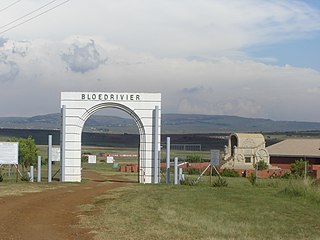
The Battle of Blood River was fought on the bank of the Ncome River, in what is today KwaZulu-Natal, South Africa between 464 Voortrekkers ("Pioneers"), led by Andries Pretorius, and an estimated 25,000 to 30,000 Zulu. Estimations of casualties amounted to over 3,000 of King Dingane's soldiers dead, including two Zulu princes competing with Prince Mpande for the Zulu throne. Three Voortrekker commando members were lightly wounded, including Pretorius.
The year 1838 was the most difficult period for the Voortrekkers from when they left the Cape Colony, till the end of the Great Trek. They faced many difficulties and much bloodshed before they found freedom and a safe homeland in their Republic of Natalia. This was only achieved after defeating the Zulu Kingdom, at the Battle of Blood River, which took place on Sunday 16 December 1838. This battle would not have taken place if the Zulu King had honoured the agreement that he had made with the Voortrekkers to live together peacefully. The Zulu king knew that they outnumbered the Voortrekkers and decided to overthrow them and that led to the Battle of Blood River.
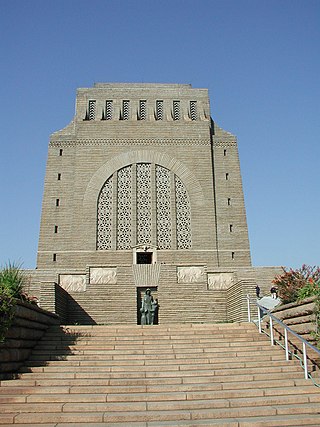
The Voortrekker Monument is located just south of Pretoria in South Africa. The granite structure is located on a hilltop, and was raised to commemorate the Voortrekkers who left the Cape Colony between 1835 and 1854. It was designed by the architect Gerard Moerdijk.

The Afrikaner Broederbond (AB) or simply the Broederbond was an exclusively Afrikaner Calvinist and male secret society in South Africa dedicated to the advancement of the Afrikaner people. It was founded by H. J. Klopper, H. W. van der Merwe, D. H. C. du Plessis and the Rev. Jozua Naudé in 1918 as Jong Zuid Afrika until 1920, when it was renamed the Broederbond. Its influence within South African political and social life came to a climax with the 1948-1994 rule of the white supremacist National Party and its policy of apartheid, which was largely developed and implemented by Broederbond members. Between 1948 and 1994, many prominent figures of Afrikaner political, cultural, and religious life, including every leader of the South African government, were members of the Afrikaner Broederbond.
The following lists events that happened during 1836 in South Africa.
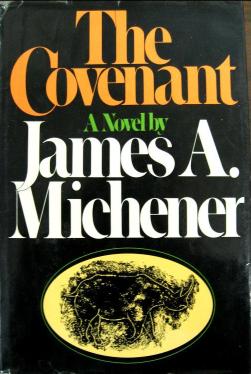
The Covenant is a historical novel by American author James A. Michener, published in 1980.

Cinema of Africa covers both the history and present of the making or screening of films on the African continent, and also refers to the persons involved in this form of audiovisual culture. It dates back to the early 20th century, when film reels were the primary cinematic technology in use. As there are more than 50 countries with audiovisual traditions, there is no one single 'African cinema'. Both historically and culturally, there are major regional differences between North African and sub-Saharan cinemas, and between the cinemas of different countries.

The Day of the Vow is a religious public holiday in South Africa. It is an important day for Afrikaners, originating from the Battle of Blood River on 16 December 1838, before which 464 Voortrekkers made a promise to God that if he rescued them out of the hands of the approximately 16,000 Zulu warriors they were facing, they would honour that day as a sabbath day in remembrance of what God did for them.

During the Napoleonic Wars, the Cape Colony was annexed by the British and officially became their colony in 1815. Britain encouraged settlers to the Cape, and in particular, sponsored the 1820 Settlers to farm in the disputed area between the colony and the Xhosa in what is now the Eastern Cape. The changing image of the Cape from Dutch to British excluded the Dutch farmers in the area, the Boers who in the 1820s started their Great Trek to the northern areas of modern South Africa. This period also marked the rise in power of the Zulu under their king Shaka Zulu. Subsequently, several conflicts arose between the British, Boers and Zulus, which led to the Zulu defeat and the ultimate Boer defeat in the Second Anglo-Boer War. However, the Treaty of Vereeniging established the framework of South African limited independence as the Union of South Africa.
Killarney Film Studios was a South African film studio established in Johannesburg by New York native and business tycoon Isidore W. Schlesinger in 1915 and is regarded as "the first motion picture studio in Africa". Schlesinger moved to South Africa in 1894, against his family's wishes, when he read about the discovery of gold in Witwatersrand. In 1913, having accumulated wealth throughout various ventures, he ventured in to the entertainment industry in 1913 when he purchased the Empire Theatre in Johannesburg for £60,000 and converted what was an "insolvent" business into a flourishing one named African Consolidated Theatres, which worked on the national distribution of content like variety shows and films from the Cape of Good Hope to the Zambezi River.
Afrikaners are a Southern African ethnic group descended from predominantly Dutch settlers first arriving at the Cape of Good Hope in 1652. Until 1994, they dominated South Africa's politics as well as the country's commercial agricultural sector.
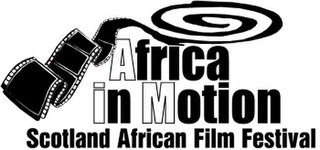
Africa in Motion (AiM) is an annual African film festival which takes place in Edinburgh, Scotland, in late October/early November. The primary aim of the festival is to offer audiences in Scotland the opportunity to view the best of African cinema from across the continent. AiM 2021 will be the 16th edition showcasing African cinema, the main hosting venue being Edinburgh's Filmhouse Cinema. The festival was founded in 2006 by Lizelle Bisschoff, a South African researcher based in the UK.
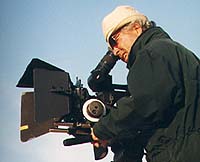
The cinema of Tunisia began in 1896, when the Lumière brothers began showing animated films in the streets of Tunis.

Harold Marvin Shaw was an American stage performer, film actor, screenwriter, and director during the silent era. A native of Tennessee, he worked in theatrical plays and vaudeville for 16 years before he began acting in motion pictures for Edison Studios in New York City in 1910 and then started regularly directing shorts there two years later. Shaw next served briefly as a director for Independent Moving Pictures (IMP) in New York before moving to England in May 1913 to be "chief producer" for the newly established London Film Company. During World War I, he relocated to South Africa, where in 1916 he directed the film De Voortrekkers in cooperation with African Film Productions, Limited. Shaw also established his own production company while in South Africa, completing there two more releases, The Rose of Rhodesia in 1918 and the comedy Thoroughbreds All in 1919. After directing films once again in England under contract with Stoll Pictures, he finally returned to the United States in 1922 and later directed several screen projects for Metro Pictures in California before his death in Los Angeles in 1926. During his 15-year film career, Shaw worked on more than 125 films either as a director, actor, or screenwriter.

Hoërskool Voortrekker is a public Afrikaans medium co-educational high school situated in the municipality of Boksburg in the city of Ekurhuleni in the Gauteng province of South Africa. The academic school was established in 1920.
Marthinus Jacobus Oosthuizen was a Voortrekker farmer known for his heroism in battle.
Henning Johannes Klopper was a South African politician who served as Speaker of the National Assembly, and the first chairman of the Afrikaner Broederbond. He is known for promoting Afrikaans and fighting White Afrikaner poverty in South Africa.















